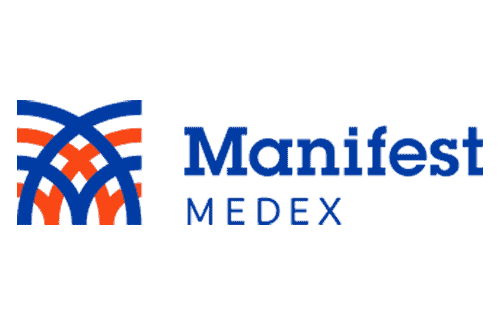Manifest MedEx (MX) is California’s nonprofit health data network—delivering real-time information across 1800+ healthcare organizations, including over 125 California hospitals and 10 health plans. Among the larger participants are:
-
- Stanford Health Care
- Heritage California
- Hill Physicians
- Scripps Health
- Health Net
- Loma Linda University Hospital
- Arrowhead Regional Medical Center
- Blue Shield of California
- Anthem Blue Cross of California
- Inland Empire Health Plan
Manifest MedEx is helping healthcare providers care for patients across the state of California every day. Together, their goal is to transform the healthcare landscape across the state, supporting California as a leader in affordable, proactive, and compassionate medical care. This is a challenging goal by any measure, and to tackle this task, a more flexible, modern technology platform was required to get the job done.
Manifest MedEx’s Interoperability Platform
Manifest MedEx selected HealthShare from InterSystems as the central platform that would enable them to make their vision a reality. Along with HealthShare, Manifest MedEx also needed expertise and experience to implement their new platform. J2 was chosen to serve as MX’s implementation partner, and engaged with MX in November, 2017.
Over the next ten months, an initiative between both organizations and several other partners for components such as EMPI, notification services, and architecture was undertaken. Adding to the complexity and challenge of this project, clinical data migrations were added to the mix. According to J2’s Principal Consultant Jim Powers, “We wanted to provide a seamless experience for providers with transaction data in HealthShare from before and after the migration.”
Legacy Data Migration Into HealthShare
To rise to this challenge, J2 created a sub-team within the MX team with the task of reverse-engineering the legacy data model via scripted SQL, transforming it into SDA, (HealthShare’s proprietary data model), and loading it safely and reliably into HealthShare. Additionally, a separate initiative focused on recreating transactional messaging from archived message stores in order to properly layer data presented by participant organizations without requiring participant resources and cost to prepare the new platform.
Beyond the challenge of consuming historical clinical data, MX also had the challenge of integrating claims data from payer sources (this combination of clinical + claims data is a major innovation that MX leads for California) and not only consuming it into the exchange, but also correlating it to clinical data to provide a unified view of diagnoses, medications, encounters, and procedures containing data from both disparate sources. For this task, J2 extended the HealthShare SDA data model.
Manifest MedEx’s Choice of Hosting Provider
In order to deliver maximum performance and value with a limited resource pool, MX made the architectural choice to stand up their environments in the Amazon Web Services (AWS) Cloud Platform. This approach brought with it several challenges. J2 was engaged from the very first conversations with MX’s hosting partner through delivery to the final product and beyond into day to day support and performance improvements.
A wide variety of cloud-hosted tools were added to the mix, including Elastic Load Balancing to support high availability infrastructure, a high frequency backup solution to ensure regular and comprehensive backups in case of a disaster, and monitoring both through AWS tools and J2’s own OpsMonitor utilities.
In order to make their platform easy to access and easy to manage, MX tasked J2 with creating a single sign-on and identity management platform that would also serve as a front page and navigator for MX’s various solutions. After defining requirements, J2 recommended a Cognito-based solution for identity management, and designed and developed a fully custom Angular app to handle the initial user experience.
This was later extended to include the ability to delegate administrative permissions to end users. Both applications, called “UUX” and “UUA” by MX internally were delivered in time for initial go-live. A separate Angular app was created to handle the need for patients to opt-in or out from participation within the exchange, and J2 also developed and delivered this application. In both cases, the applications are tightly integrated with HealthShare’s backend and coexist with HealthShare, efficiently extending MX’s platform without the need for additional EC2 instances or hosting costs.
Managed Terminology Services
When MX needed advanced terminology management for data normalization, mapping, and sensitive data handling, they selected HealthTerm.
HealthTerm increases patient safety and security by delivering a defined, consistent, and precise terminology base for MX users.
The standardized and normalized data ensures semantic coherence and consistency in diagnosis, treatment, quality assurance, and reporting across participant organizations.
Today, Manifest MedEx has a robust, scalable cloud infrastructure in place to support their mission. Their platforms are working to achieve the ultimate goal all organizations strive for: to improve patient outcomes through access to clinical data wherever and whenever it’s needed.
Salesforce
When MX needed to integrate UUX and HealthShare with Salesforce to support utilization reporting within Salesforce, the organization brought in J2.
MX and its participants were using UUX to provision users access to various web applications. Additionally, MX was using Salesforce to manage new organization/participant onboarding and support calls. However, these systems were separate.
J2 performed an integration that now updates MX’s Salesforce org when a user is added or modified in UUX. Additionally, relevant auditing information related to system usage (e.x. login attempts, access to various systems, etc.) is now loaded into Salesforce nightly with reports developed using both native Salesforce data (accounts, contacts, and cases) and information integrated from UUX/HealthShare.
MX now has:
- Real-time integration between HealthShare and Salesforce to ensure UUX users are maintained as contacts within Salesforce
- Nightly bulk load of UUX/HealthShare Audit events to Salesforce
- Accounts page layout edits to allow for the documentation of organizations and participants UUX code or identifier
- An initial set of reports related to accounts, contacts, cases, and HealthShare audit data both at an individual account level and across all of Manifest MedEx
NCQA
MX earned the Validated Data Stream designation after fulfilling the NCQA’s Data Aggregator Validation program requirements. At the time of earning the designation, MX was among only ten organizations in the US with validated data streams and the only organization in California to earn this designation. The earned designation means that health plans can use validated data from MX for Healthcare Effectiveness Data and Information Set (HEDIS®) reporting without needing to obtain and validate the data from individual providers.
The J2 team was heavily involved in the project, with senior developers and data validation professionals helping MX complete the necessary requirements to earn this designation.



